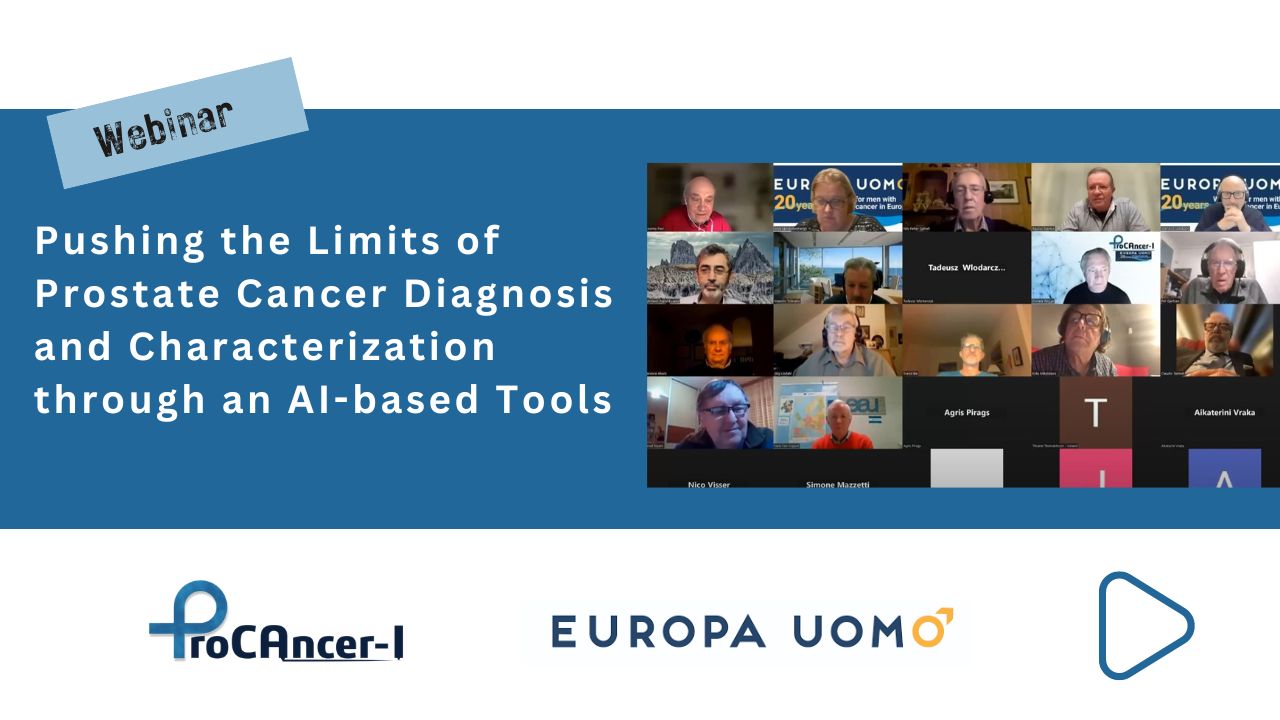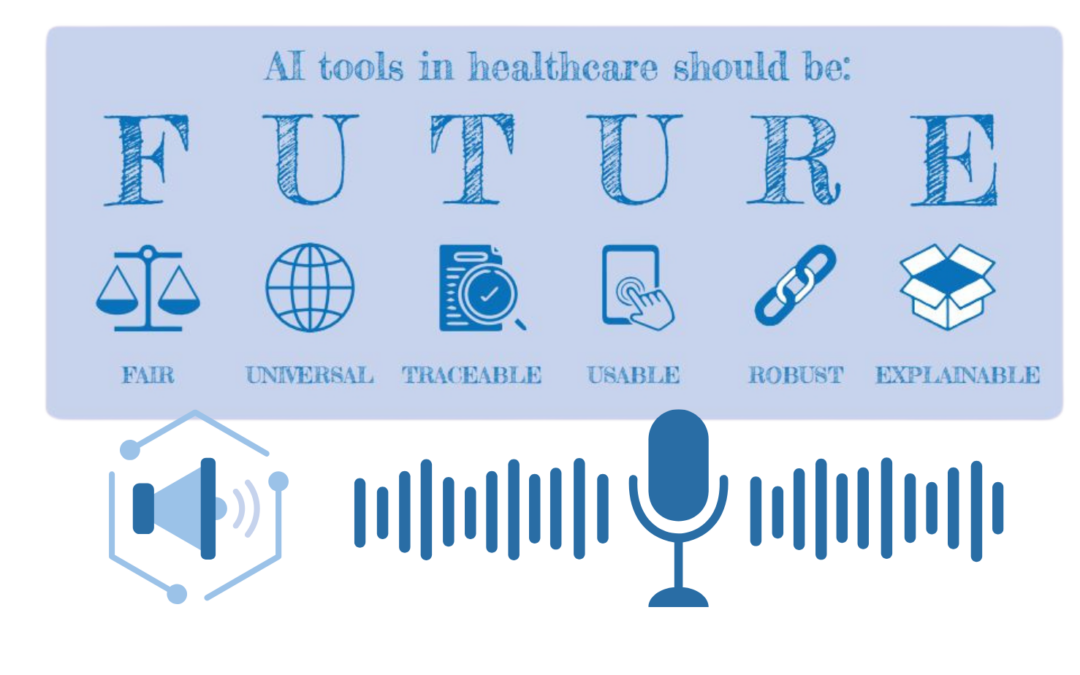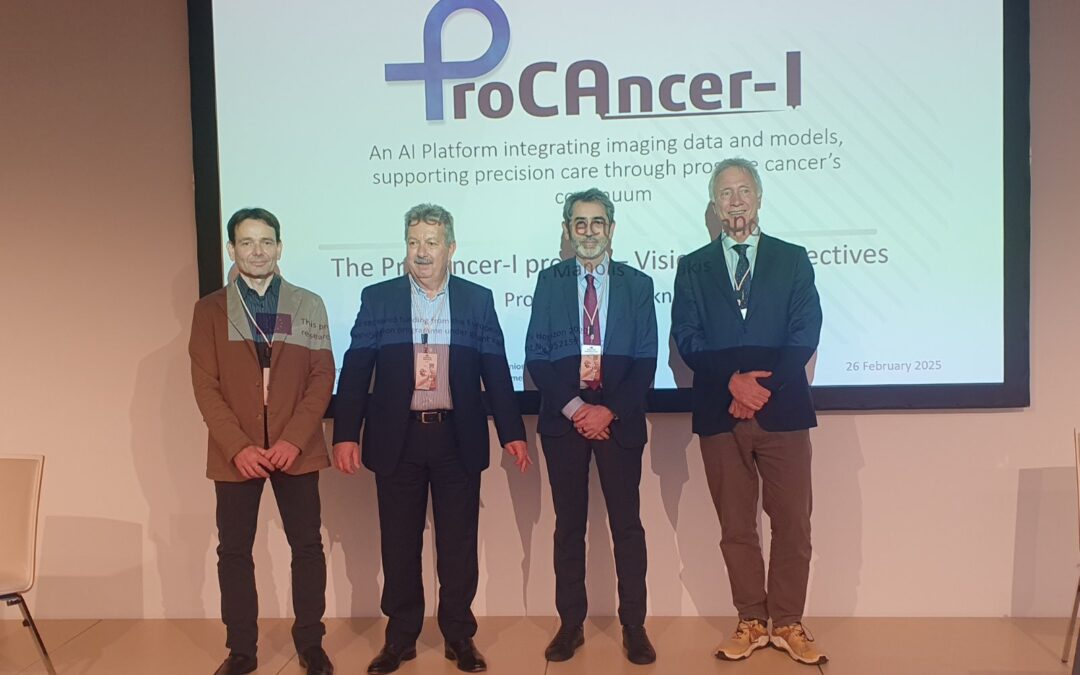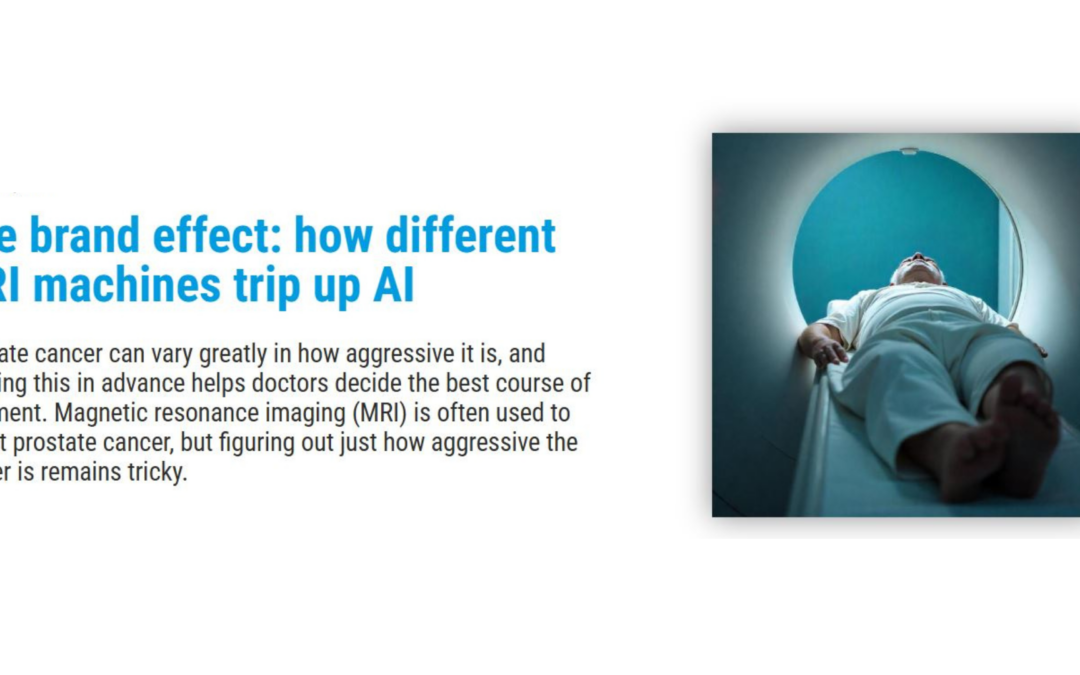Artificial intelligence (AI) technologies could significantly improve the diagnosis of prostate cancer, early results from a new European Commission-funded research project show. Presenting findings at a Europa Uomo webinar, the team from the ProCAncer-I project reported that it was validating promising new AI models for detecting lesions and predicting aggressiveness.
“We believe that the project is about to deliver some significant results, once some of these models are clinically validated within the next 12-14 months,” said Manolis Tsiknakis, ProCAncer-I Coordinator.
ProCAncer-I brings together 20 partners from 11 countries, including 13 prostate cancer reference centres, centres of technical excellence and world leaders in AI. With a budget of €10 million, it is collecting a unique database of tens of thousands of real life case studies, with accompanying mpMRI images. The database already includes seven million images. Researchers are using the database to see whether artificial intelligence tools can accurately characterise lesions, assess metastatic potential, detect recurrence early and stratify patients for active surveillance.
Speaking at the Europa Uomo AI webinar, Nikolaos Papanikolaou, Scientific Manager of ProCAncer-I, said that results were so far very promising in terms of detecting lesions and predicting aggressiveness. “We have very positive results in the field of detection and characterisation of prostate cancer, aggressiveness mainly, while we have encouraging results for all the other clinical use cases,” he said. To learn more about the use of artificial intelligence in the diagnosis and treatment of prostate cancer, watch the video of the Europa Uomo webinar below or on YouTube.





